OUR APPROACH
Our goal in the creation of this AAPI History Museum is to foster a space where the community can come together and learn about AAPI history, cultures, and impacts on Rhode Island. This space will be the AAPI History Museum & Culture Center (brick & mortar version).
We want to create exhibits that appeal to different learning styles, so that anyone can form a connection with the subject, AAPI History, in front of them. The museum exhibits are created with four main learning styles in mind: visual learning, kinesthetic learning, auditory learning, and classic learning through reading and writing. There are other learning styles, such as logical/analytical, social/linguistic, solitary, nature, etc., but we generalize our exhibits to encompass the four main categories of learning styles. By opening to a wide audience variety, we are also striving to get more members of the youth community involved through this museum, to convey an understanding of history and an appreciation for museums.
The name of the museum is subject to change, depending on the outreach to people of Pacific Islander descent (an issue asked about in our interest form). Completing the AAPI History Museum is an ongoing process and project that may last for years, but we will have a product to show in the interim.
DEMOGRAPHICS OF U.S. MUSEUM GOERS: A 2024 UPDATE
From the American Alliance of Museums, conducted in conjunction with Wilkening Consulting.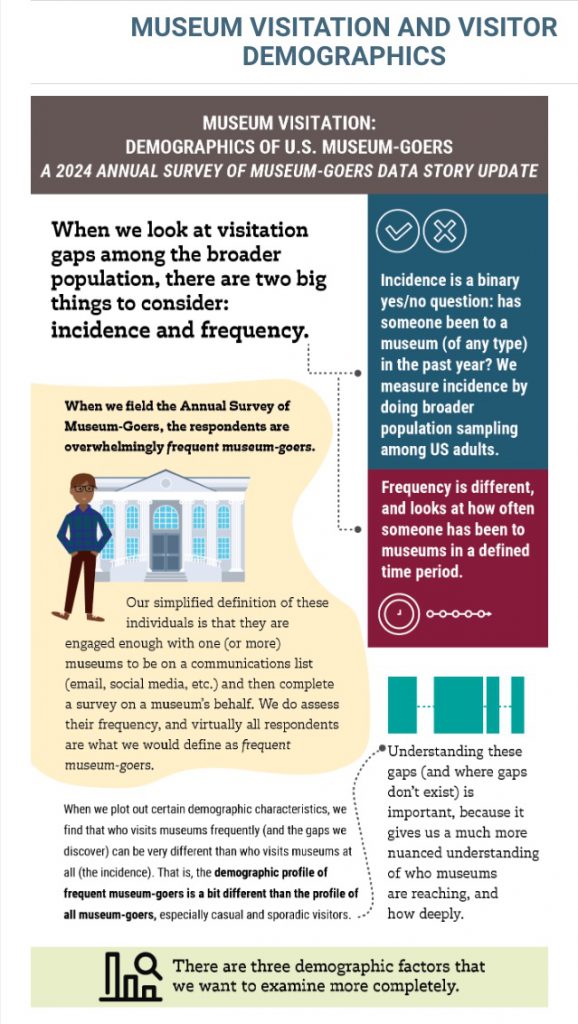
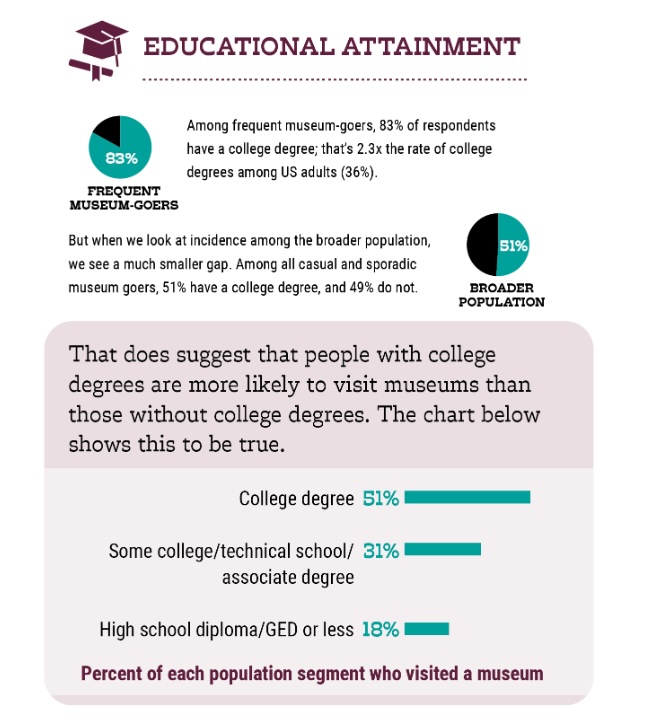
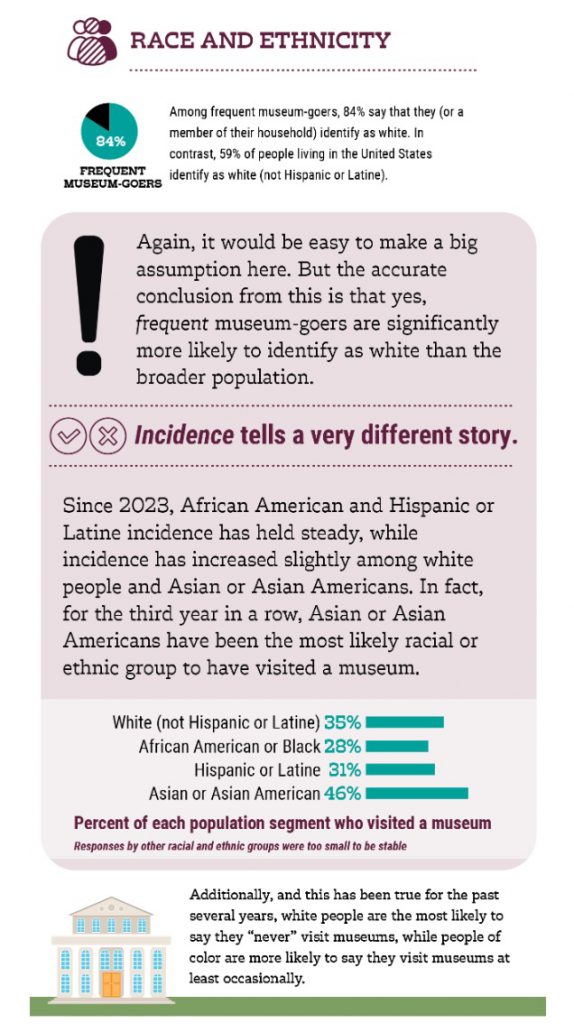
The updated report from American Alliance of Museums (AAM) shows that the average museum goer has changed from the past trends. Take a look at the infographics and read the entire report to learn about these new trends in educational attainment, race and ethnicity, and age and life stage.
This report gives us insight in how to structure our AAPI History Museum more effectively so we can engage our audience and community more closely.
WHAT'S NEXT
We aim to create more interactive exhibits that encourage hands-on participation, allowing visitors to engage through observation and touch, sound, and movement. Music and soundscapes are among the tools we plan to incorporate, capturing the essence of the histories we present. Unlike traditional museums that rely heavily on visual learning, our goal is to stimulate all five senses—and even a sixth sense: reflection through writing! In our Brick-and-Mortar Museum, you’ll find a ‘Reflection Section,’ where you can write a letter to your AAPI community or someone in your past or future journey of self-discovery.
Additionally, we intend to translate every exhibit into its respective ethnic language to foster inclusivity and connection. For example, the Chinese American Journey will be available in Chinese, the Cambodian American Journey in Khmer, and the Vietnamese American Journey in Vietnamese. This approach bridges the gap between first-generation immigrants, whose English proficiency may be limited, and younger generations. By making the AAPI History Museum (in its website, mobile, and brick-and-mortar formats) accessible in multiple languages, we hope to create an experience that unifies families and strengthens cross-generational connections.
OUR PRIORITIES (RICCC)
Respect people no matter where they are intellectually, emotionally, financially, and geographically.
We want to include as many people, perspectives, and viewpoints as possible. If you don’t see your viewpoint being represented, please let us know so that we may rectify the oversight.
Embrace difficult history with compassion. Take a deep breath and self-reflect before you speak or share your thoughts.
Community is the thread that ties all our humanities together. What we do, what we say, and how we respond impacts how another person feels. We embrace community for all these reasons, and more.
We are always in the hope and spirit of collaboration. There is still much to learn from other people and organizations; we must accept this knowledge with a sense of humility, in cooperating and learning from each other and with each other. We hope that through collaboration, we may produce something much greater than what could be achieved separately, resulting in an exponential return!
MUSEUM PROTOTYPE
The Seed of Imagination
This mobile museum prototype represents the vision and hope behind this entire initiative. For communities long marginalized and excluded from dominant narratives, it rekindles the capacity to imagine and build. This exhibit plants the seed of what an AAPI history museum can be—beginning with this mobile version and leading toward a permanent brick-and-mortar home.
The prototype is funded by a grant from the following organizations:

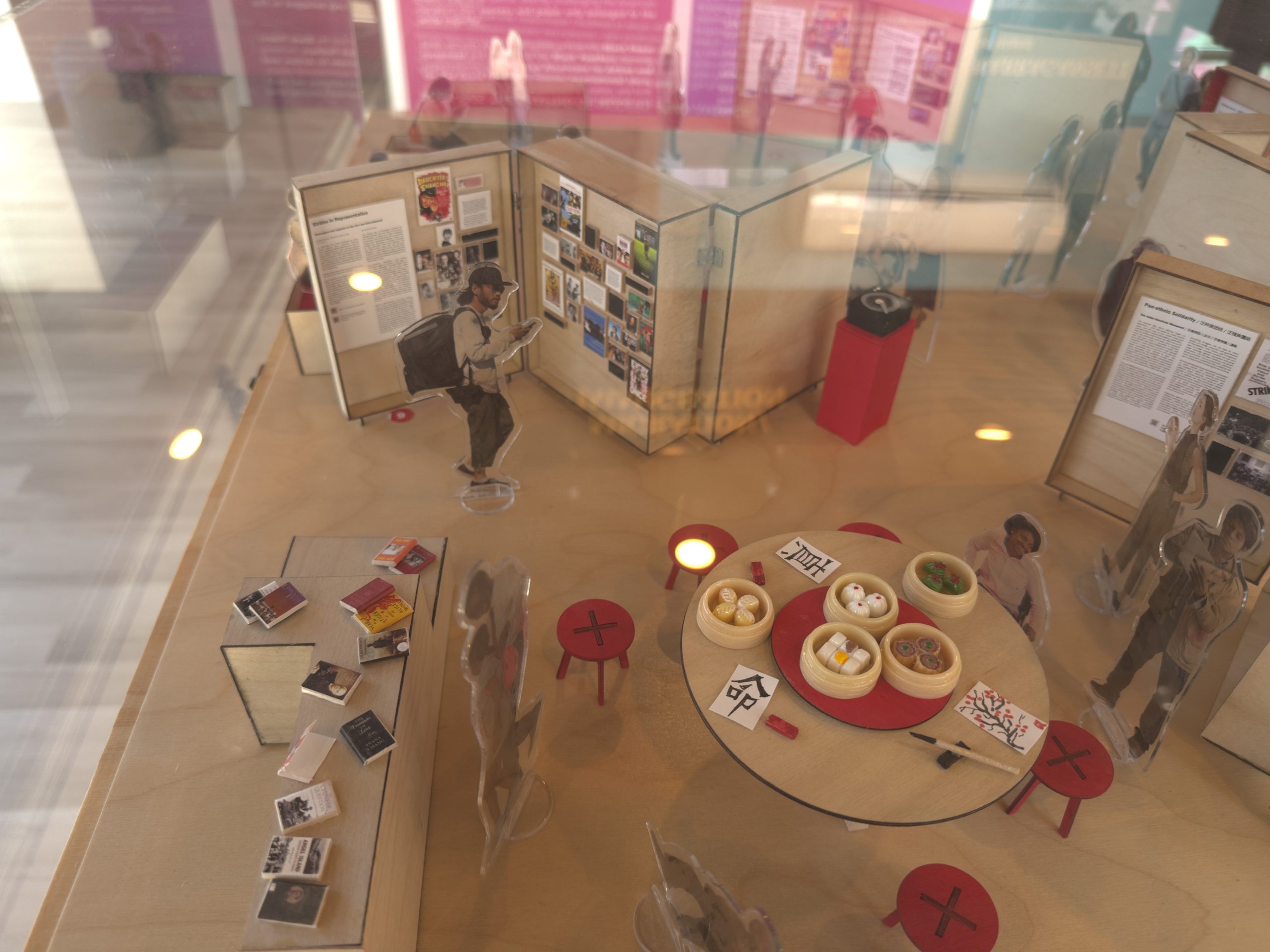


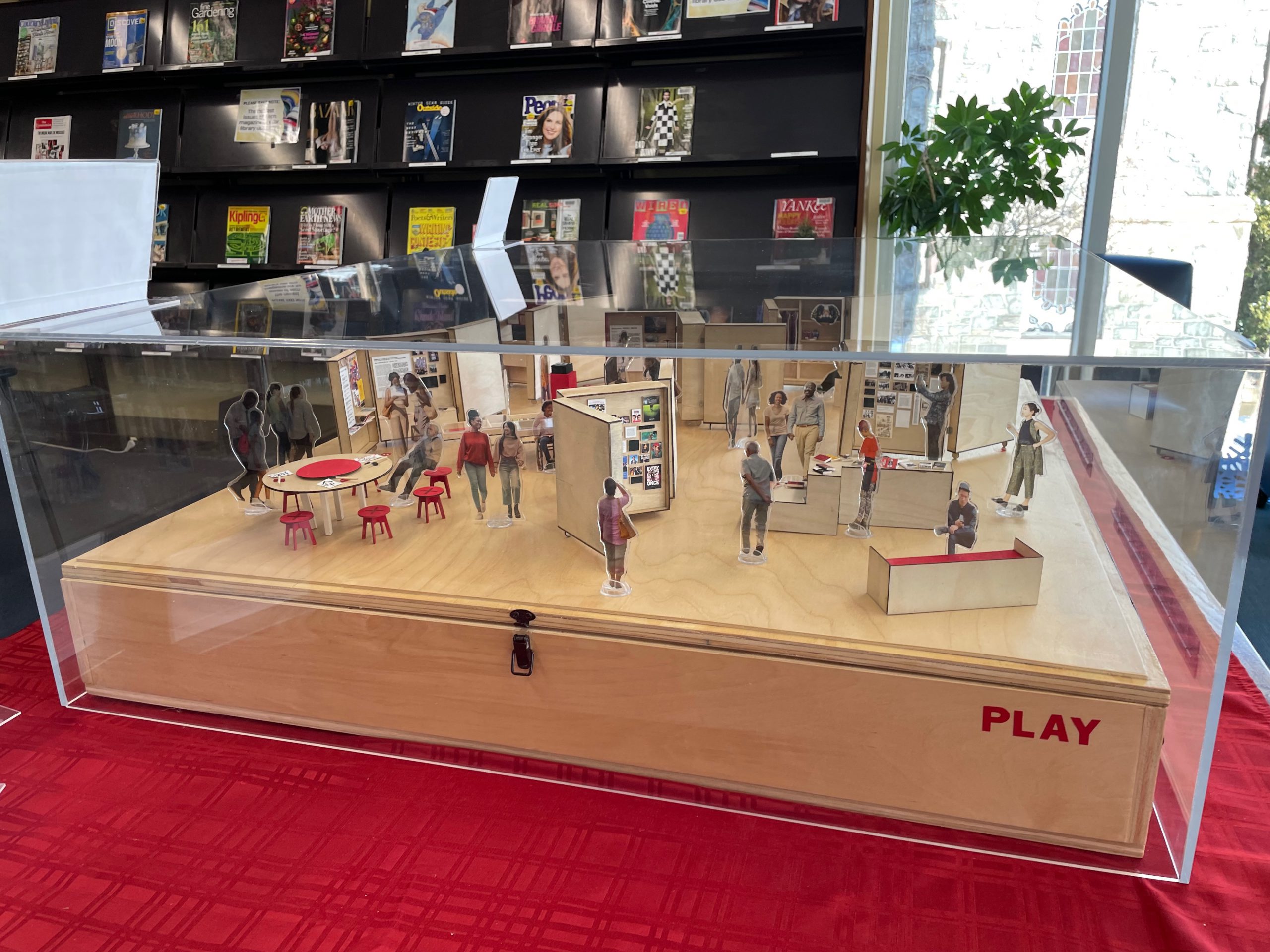
OUR AAPI MOBILE MUSEUM IS NOW OPEN TO THE PUBLIC!
Our mobile museum made its debut at the PVD Fest on Sept. 7, 2024 and it's now open for booking!
Register NowView Video
